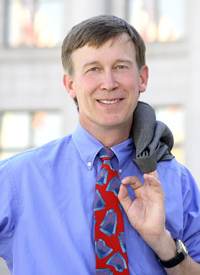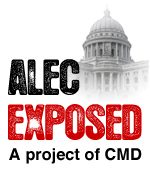Homeland Security Funds Talks by Fake "Ex-Terrorist"
Submitted by Anne Landman on
Walid Shoebat is a Palestinian-American who converted from Islam to conservative Christianity. He was born in the West Bank to an American mother, claims he was a terrorist with the Palestinian Liberation Organization, that he helped fire-bomb an Israeli bank in Bethlehem as a youth and even served time in a jail in Israel for his crimes. A self-proclaimed expert on terrorism, Shoebat says he knows how potential terrorists think, because he was one. Since 2006, he has been interviewed as a terrorism expert on CNN, Fox News and HLN. In May, Shoebat was a featured speaker at a forum put on by South Dakota's Office of Homeland Security for police and sheriff's deputies, where he earned a $5,000 fee for his appearance. In his presentations, Shoebat warns that Islam and terrorism are one in the same, that mosques are hotbeds of potential terrorist organizing and tells his audiences to be wary of Muslim doctors, engineers and students. Shoebat operates several foundations, one of which earned over $500,000 in 2009 through sales of his books and videos, and speaking fees for talks he gives at churches, universities, military bases and counterterrorism trainings. But Shoebat may not be what he claims to be. CNN's Jerusalem bureau conducted an extensive investigation into his background and was unable to substantiate Shoebat's claims of past terrorist activity. The Tel Aviv headquarters of the bank that Shoebat claims to have fire-bombed has no record of a fire-bombing at its Bethlehem branch, and Israeli police have no record of it, either. The prison where Shoebat says he was incarcerated has no record of him being an inmate there, and his relatives describe him as a "regular kid" who eventually became a computer programmer in the U.S. The Military Religious Freedom Foundation in Albuquerque, New Mexico first exposed in 2008 that portions of Shoebat's past were fabricated.

 The
The  In the 2010 elections,
In the 2010 elections,